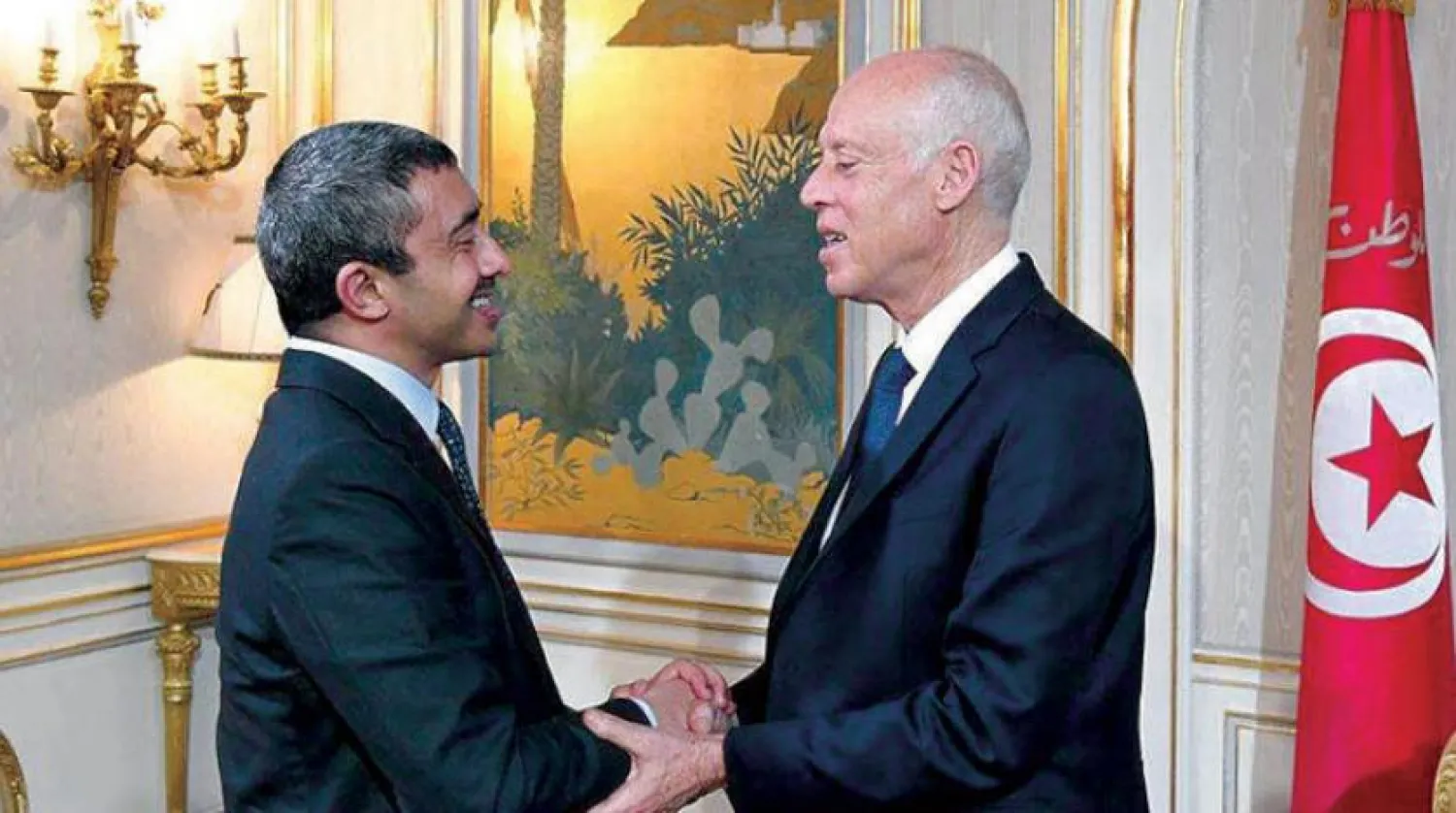The talks of UAE Minister of Foreign Affairs and International Cooperation Sheikh Abdullah bin Zayed in Tunis focused mainly on the Libyan crisis and the chances of a political settlement to end the country’s nine-year war, high-level Tunisian and Emirati sources revealed to Asharq Al-Awsat.
Reports show that battles have worsened since the beginning of last April, especially in the Libyan capital, Tripoli, and some cities in southern and western governorates.
According to the sources, Sheikh Abdullah bin Zayed’s short visit to Tunis enabled him to hold a “very successful” meeting with Tunisian President Kais Saied in the presence of a high-ranking Emirati delegation.
Talks between the two sides covered the results of the Berlin Conference on Libya and the announced ceasefire between forces loyal to General Khalifa Haftar, commander of the Libyan National Army, and the Government of National Accord led by Fayez al-Sarraj. The ceasefire is supported by the countries in the region.
The Tunisian and UAE officials also exchanged views on ways to resolve the Libyan crisis, which directly effects the economic, political and security conditions in Tunisia. The majority of Libyan civilians flee to Tunisia, as it is the closest to the Libyan cities and the capital Tripoli, and also because Tunisia does not impose an entry visa on Libyan passport holders.
At the start of the meeting, Sheikh Abdullah conveyed the greetings of President Sheikh Khalifa Bin Zayed Al Nahyan, Sheikh Mohammed Bin Rashid Al Maktoum, Vice President, Prime Minister and Ruler of Dubai, and Sheikh Mohamed Bin Zayed Al Nahyan, Crown Prince of Abu Dhabi and Deputy Supreme Commander of the UAE Armed Forces.
He also invited Saied to visit the UAE, under the framework of the strong ties between the two countries and their mutual will to reinforce them in all areas.
During the meeting, both sides also discussed areas of mutual cooperation and ways of developing them in many areas, including in terms of economic development.









